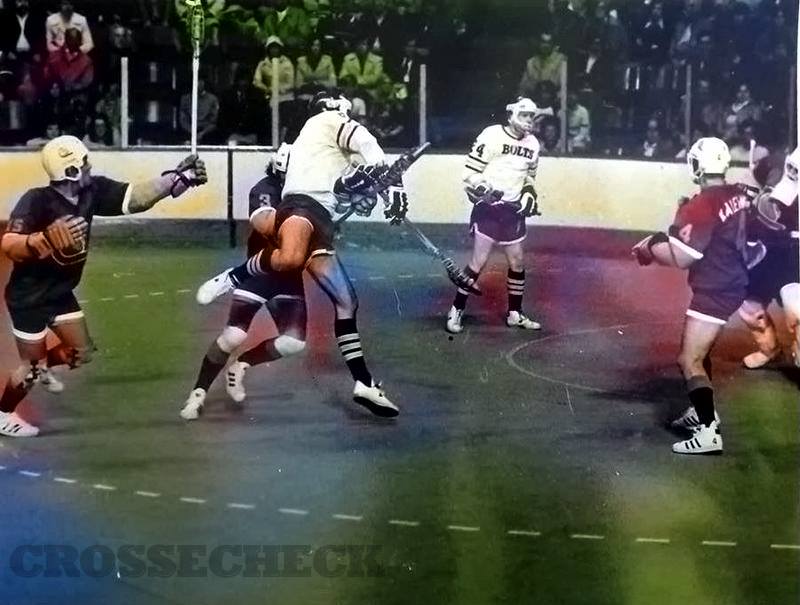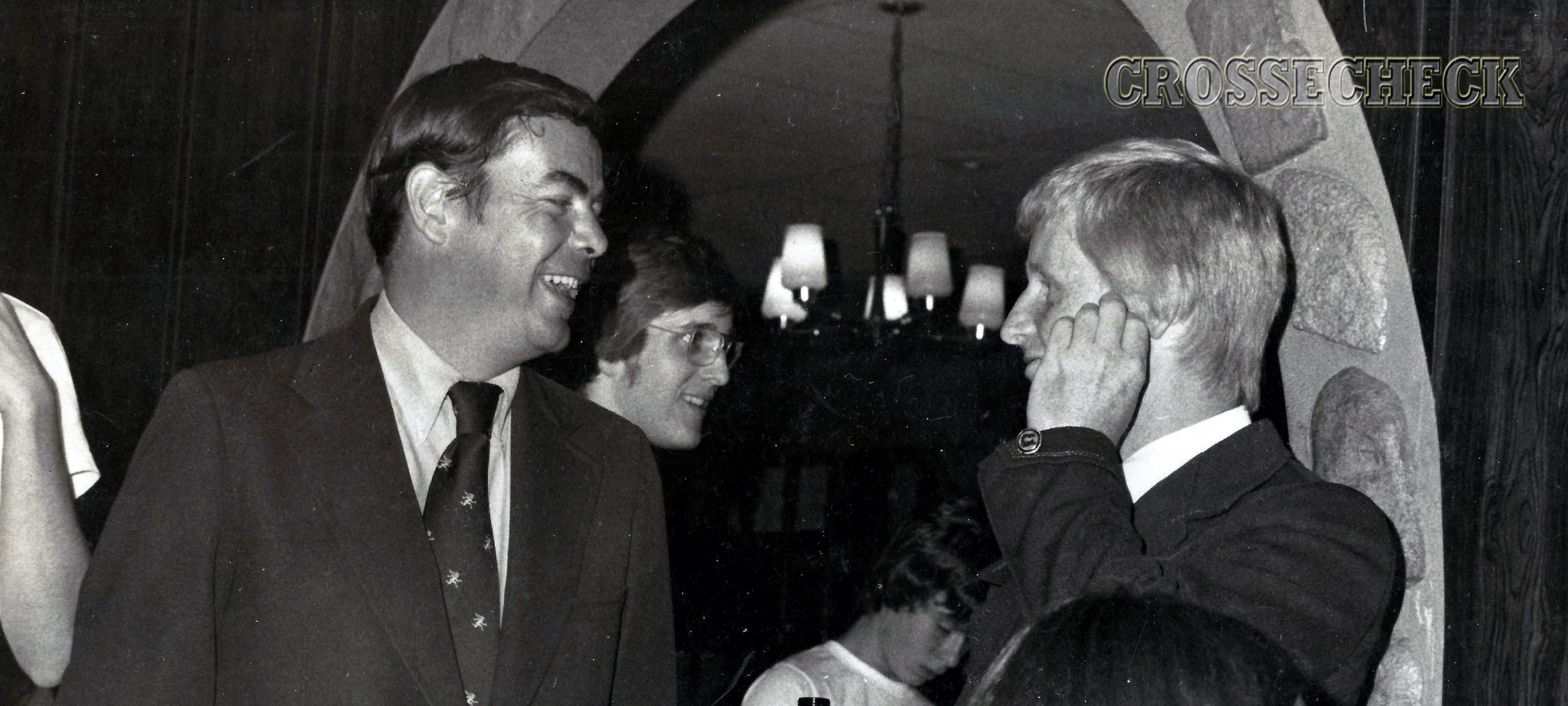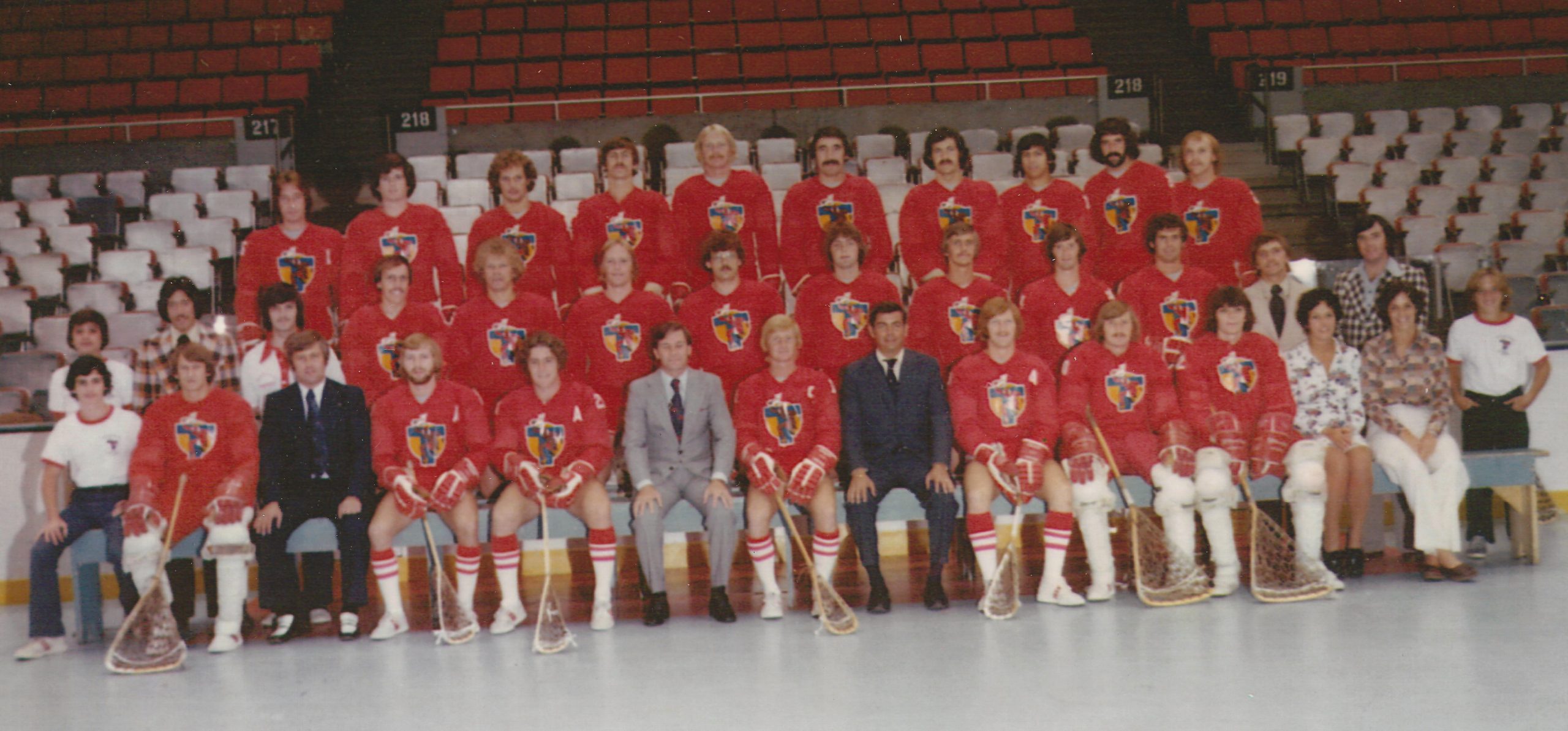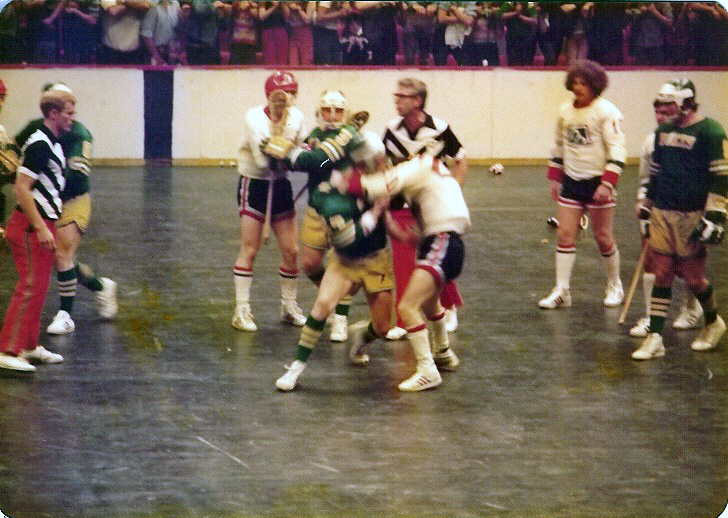Kells vs. Bishop in battle of the best
Reporter Dave Carter of The Gazette, whose beat includes coverage of Les Quebecois of the National Lacrosse League, provides this analysis of coaches Jim Bishop and Morley Kells. Bishop, an advocate of speed and agility, has his Les Quebecois in second place. Kells, who stressed strength and the shooting game, has his Tomahawks on top of the league and has beaten Bishop in seven of eight meetings this season.

The names are Morley Kells and Jim Bishop. Simple, direct, no nonsense names. Simple, direct, no nonsense men in a game as sudden as a summer storm and where violence is as swift as sheet lightning.
One patrols the aisle behind the bench of the Long Island Tomahawks. the other the pathway behind the hunched backs and sweating faces of Les Quebecois.
Both are intense. Both are sure of the rightness of their systems.
Both are committed to the Lombardian premise that winning is not everything, so much as it is the only thing.
But there are differences and in the cases of Kells, coach and general manager of the Long Island franchise in the National Lacrosse League, and Bishop, who occupies the same portfolios for the Montreal team, they very well may spell the distinction of first and second place.
And that, precisely, is where it stands now as the teams approach the end of the regular season and prepare for the playoffs in this, the second year of the league s existence.
Kells and Bishop have been rivals for years and, indeed, there is little secret that in the competition to decide the best of the best, the sweetest victories are the ones that come at the other’s expense.
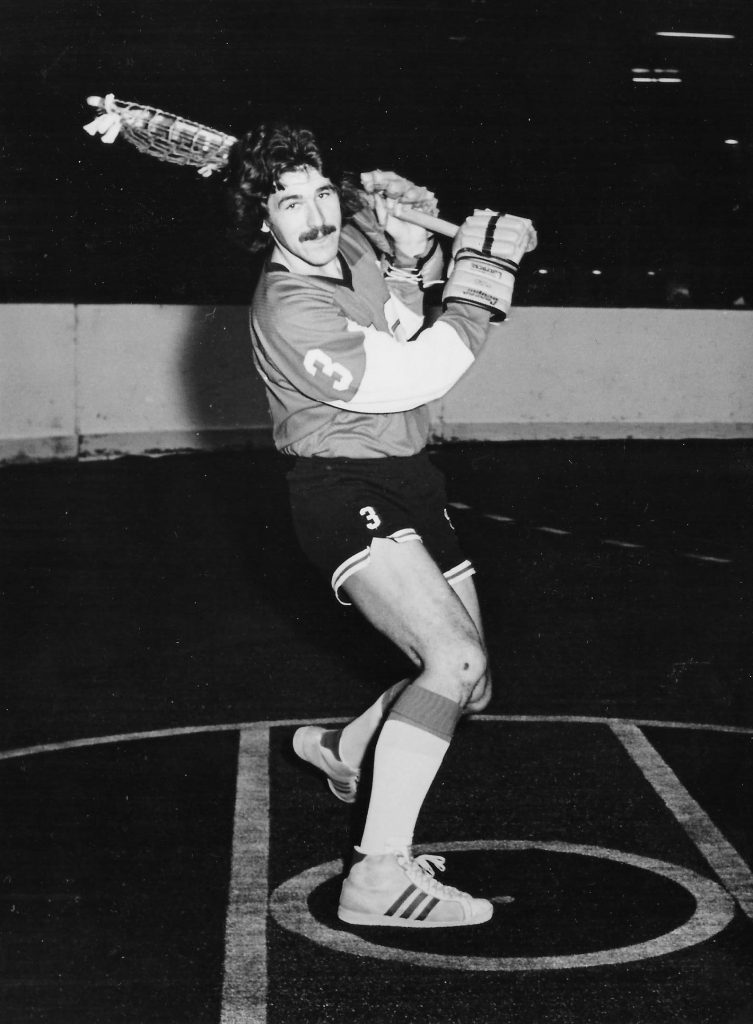
Who’s crying now?
Bishop got the first laugh this season when he spoiled the Tomahawks’ debut in their new Long Island home when Les Quebecois stole a 14-13 victory on Wayne Finck’s goal with 13 seconds remaining in the game.
Kells has been laughing ever since.
Long Island has won its last seven games against Les Quebecois, including four in front of home crowds at the Forum.
Both men abide by a system that decrees the player must want to play the game the way the coach and general manager thinks it should be played or, alternatively, play it somewhere else.
Such a case was Jim Lynch, rookie of the year in 1974 and the happiest member of Les Quebecois, whose disenchantement was immediate when Bishop was named coach and GM.
Bishop traded him to the Philadelphia Wings in exchange for Ross Jones, unhappy with the way things were going in the City of Brotherly Love, but who was able to accept Bishop’s demanding schedule of physical fitness.
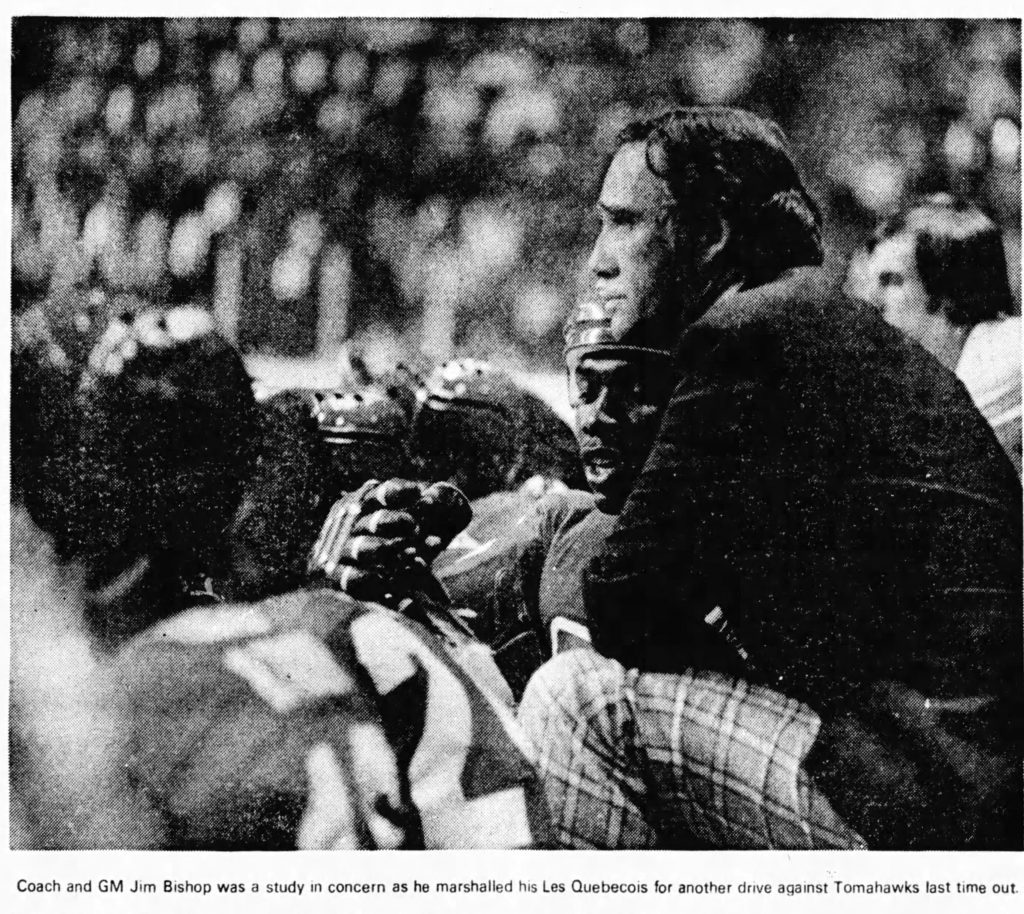
Desire to win…
Bishop and Kells worn with a system and those who cannot abide by it eventually find themselves in other cities. Both explain it as a desire to win.
Just how much Kells is committed is reflected by the story out of Rochester last season in which he was accused of stealing every running shoe from the Philadelphia dressing room before a game in the finals.
“I like to win but I’d never go to that extent.” he says, a grin splitting his puckish features. There is a hint in the smile that he didn’t do it. as many accused him of doing, men perhaps it wasn t a bad idea and might do some other time.
Kells’ Tomahawks have the mark of a winner about them this season and the thinking around the league is that only an upset of major proportions separates Long Island from a Nations Cup triumph.
Bishop, meanwhile, is having difficulty maintaining the pace in the latter stages of the season of the fast break style that is the trademark of all the teams he has coached.
The fast break…
“I like to run a fast break style,” he said during his first press conference in Montreal, the one called to announce his hiring. “If we’re not up there this season, then there’s no one to blame but me.” Les Quebecois are “up there’” in second place after 42 games, much of their position due to a quick start in the season.
It appears, however, that their legs are giving way in much the same fashion as Kells has predicted earlier this season and. with six games left in the schedule, are in danger of being overhauled by the Wings and, although a remote possibility, the Boston Bolts.
“Philadelphia and Boston will come on at the end of the season,” Kells predicted, “and Montreal will sag and get tired.”
“Unlike Philadelphia and Boston, which play a shooting game, Les Quebecois play a running game. Running teams wear down towards the end of the schedule.”
In the playoffs — a brand new season, he says — he would pick Philadelphia over Montreal but first, and it is with confidence that he says it, the Tomahawks will take home the Nations Cup.
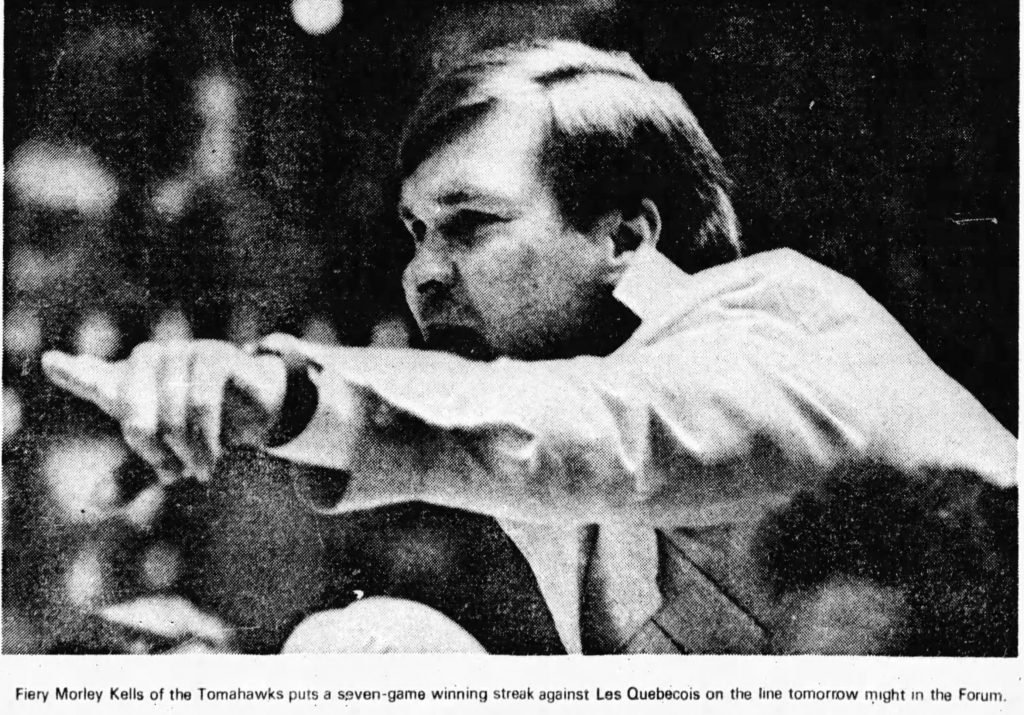
A strong draft…
“Definitely,” he remarks. The reasons he believes so strongly are the likes of Doug Hayes, Jimmy Johnston. Chuck Medhurst, Ted Greeves and Doug Barrie — all of them selections from the draft, all of them shoring up the holes he felt he had to fill to repeat as NLL champion.
Except for the league rule which stipulates a senior cannot qualify for rookie of the year honors. Hayes — who played at that level in western Canada last year — would be a natural. As it is, the 6’3” 220-pound forward is without doubt the most valuable player on the Tomahawks’ roster and. possibly, in the league.
He was chosen fourth in the draft — behind Dave Durante. Al Lewthwaite and Ken Winzoski — but Kells says of him: ‘When he plays our system, he’s the best in the game. He was the best in June, but in July and August, he wasn’t.”
Kells, as it seems most NLL team officials are, is considerably more forthright than his peers in other professional sport. Hayes, for example, was the offensive standout in a recent game at the Forum with four goals.
Way it is…
“He was lazy.” said Kells as candidly as he would tell the equipment manager that the bus would be leaving in half an hour. “You can score four goals,” said Kells, “and still not come back down on the floor to check.”
In last week’s battle at the Forum. Hayes had his scoring lead on the line and the Tomahawks were trailing.
John Davis, captain of Les Quebecois and a veteran who deserves a spot in any lacrosse hall of fame for his contributions in the 60s and 70s, had collected three points in the first two periods and had moved into the top scoring spot.
Hayes, shut out until the final 20 minutes, got two goals of the six that were scored to take a 14-11 victory. Defence? Hayes must have been doing his part as Long Island kept Les Quebecois off the scoreboard.
Johnston, 21. who had been collared with the reputation as a “lazy player” during his junior career, has become a threat to every team in the league.
‘When they needed a big goal,” says Les Quebecois assistant coach Frank Wilbur, “it’s always Johnston.” Such was the case when Wilbur and Bishop watched Long Island defeat Quebec Caribou “When the score was tied, I said Johnston would score and he did.”
